The legacy of love, spice and porcelain: A delicious dive into Peranakan food in Malaysia
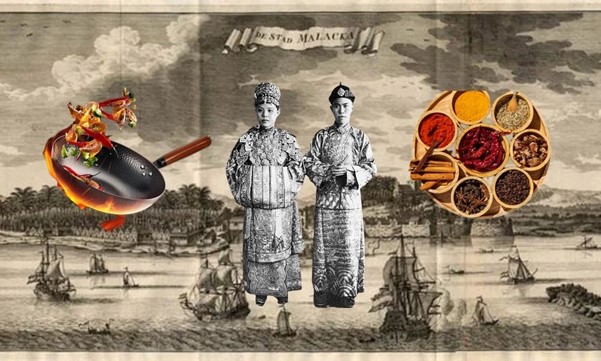
If you’ve ever been swept up in dramas like The Little Nyonya or Emerald Hill, you’ll know there’s more to Peranakan culture than just embroidered kebayas and delicate porcelain bowls. At the heart of it all is the food — vibrant, spicy, and layered with family stories passed down through generations.
From the slow-cooked richness of ayam pongteh to the pastel hues of kuih lapis, every dish carries the legacy of cultural fusion, tradition, and love stirred in from centuries ago.
What makes Peranakan food so special?
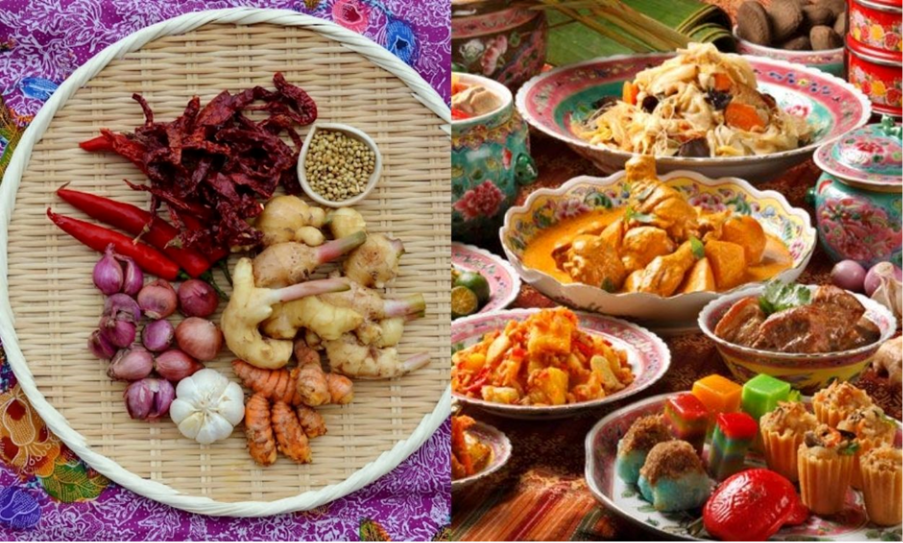
The Peranakans, also known as Baba-Nyonya, are descendants of Chinese traders who settled along the Straits of Melaka and married local Malay women as early as the 15th century. This cultural blend gave rise to a unique way of life — from language and clothing to one of the most iconic aspects of all: the food.
Peranakan or Nyonya cuisine is often described as one of Malaysia’s earliest forms of fusion food. You’ll find Chinese ingredients cooked using Malay methods, with layers of flavour built from spices like turmeric, galangal and lemongrass. Coconut milk, tamarind, belacan (fermented shrimp paste) and candlenuts all feature heavily — resulting in dishes that are both bold and beautifully balanced.
And while it may taste complex, Nyonya food is more than just technique. Traditionally, recipes weren’t written down. They were memorised, adjusted by intuition, and shared between generations — often by the women of the household.
Did you know? Not all Peranakan food is the same
Peranakan cuisine can vary quite significantly depending on where you’re from. While the roots are similar, the local influences make each region’s style distinct.
Here’s a quick look at the two main regional styles you’ll find in Malaysia:
Penang-style Peranakan (Northern)
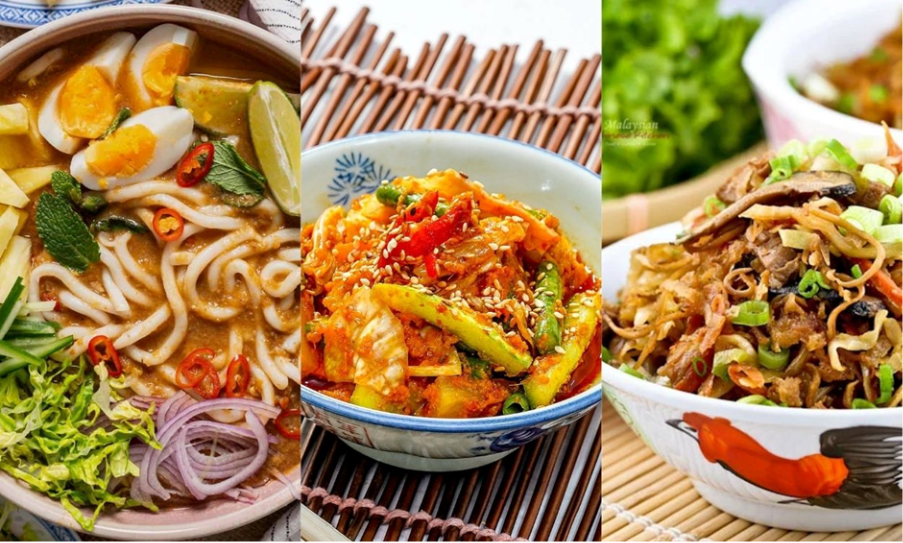
Known for its tangy and aromatic profile, northern Peranakan food is influenced by Thai and Hokkien flavours. Expect bold, sour notes from tamarind and asam, as well as pickled elements that brighten each bite.
Popular dishes:
• Asam laksa – a spicy, sour fish noodle soup with torch ginger
• Jiu hu char – stir-fried shredded cuttlefish with vegetables
• Nyonya acar – turmeric-spiced pickled vegetables
Where to try it in Klang Valley:
| Little Heritage House Address: 23, Jalan 17/56, Seksyen 17, 46400 Petaling Jaya, Selangor Opening hours: Daily, 11.30 am – 10 pm Halal status: Muslim-friendly |
Melaka-style Peranakan (Southern)
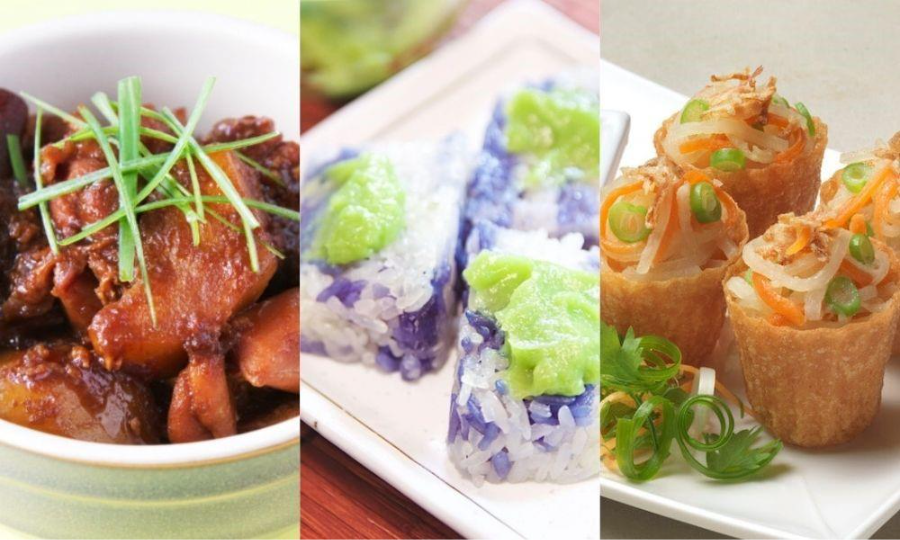
Melaka is where Peranakan culture first flourished, and the local cuisine reflects the richness of its roots. These dishes tend to be creamier and more complex, featuring ingredients like fermented soybean paste and coconut milk.
Popular dishes:
• Ayam pongteh – braised chicken with potatoes and fermented bean paste
• Kuih pulut tai tai – glutinous blue rice served with kaya
• Pai tee – crispy pastry shells filled with savoury vegetables
Where to try it in Klang Valley:
| The Peranakan @ Bangsar Address: 1st Floor, 17, Jalan Telawi 3, Bangsar, 59100 Kuala Lumpur Opening hours: Daily, 12 pm – 3 pm; 6 pm – 10 pm Halal status: Halal |
A look into the traditional Nyonya kitchen
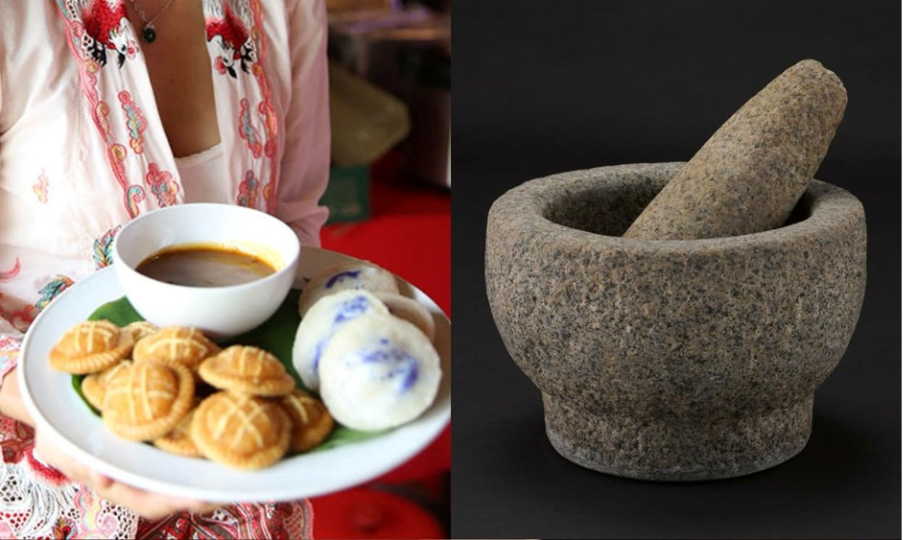
In the old days, the Nyonya kitchen was sacred space — and often the domain of women only. Cooking wasn’t just about feeding the family; it was a symbol of skill, patience and even marriage readiness.
Dishes were made from memory, passed down through generations with pride. Even tools like the lesung batu (mortar and pestle) were family heirlooms, used to grind spice pastes that formed the soul of every meal.
While modern kitchens may look different today, the spirit of Nyonya cooking, slow, intentional and full of heart, lives on.
Find hidden food gems near you
Craving a taste of Peranakan cuisine but not sure where to go? Use the Near Me feature in your TNG eWallet app to discover nearby restaurants serving authentic favourites — whether it’s classic Nyonya kuih or a hearty bowl of laksa.
There’s always something new to try, just around the corner.